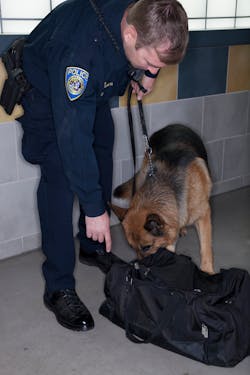When the Bay Area Rapid Transit Police Department began stepping up patrols on the system in 2011, some riders expressed concerns about additional police presence and the enforcement of what many may deem minor crimes.
“There were some complaints where people would ask why are your officers harassing people when it seems like they’re not doing anything,” BART PD Spokeswoman Era Jenkins said. “Some people felt like it was harassing, but other people like Chief [Kenton] Rainey know there is often a link between those who commit minor crimes like smoking in the system or fare evasion, so he wanted an analysis.”
In 2011, the stepped up enforcement found BART police found there were $11 million in warrants of those who were committing crimes on the system that year. And the 2012 enforcements found $8.2 million in warrants, Jenkins said.
“That’s still a huge amount of warrants,” she said.
BART officers contacted 1,068 people in 2012 for infractions, 816 of which were fare evaders. Jenkins said of those, 425 had warrants.
The increased enforcement involves officers patrolling the top five stations identified for extra patrols and officers also ride trains in critical areas, such as between downtown Oakland and San Francisco where they look for infractions by riders.
Jenkins said the infractions range from people sleeping to others rolling a marijuana joint while riding, but those caught with warrants come from all over with a wide range of past criminal activities.
“One time we got a guy who was a wanted bank robber,” she said. “We get a whole gamut of people.”
With the additional patrols, Jenkins said the arrests are helping make neighborhoods in the Bay Area safer because those with the warrants and criminal histories are being taken off the streets and no longer committing crimes in the community.
“Experience has taught us that there is often a connection between fare evading or breaking seemingly minor laws to committing more serious crimes,” Rainey said in a press release. “We’ve stepped up our fare evading enforcement and we are actively seeking people that are causing problems on the system.”
Since the ramped up enforcement began, Jenkins said there has been a 13 percent increase in crimes against persons, but it reflects a sign of the times as more people are committing street crimes in areas where there are crimes of opportunity.
Jenkins said BART officers will continue to keep up the patrols this year in order to catch fare evaders, those harassing riders or committing other crimes, and doing welfare checks on people to make sure they’re alright in order to keep the system safe and clean for all riders. And with the continued enforcement, officers will continue to help improve neighborhood safety for everyone in the area.
“We’ve had people who have said thank you, while on the other side, there are people who ask things like 'why do you harass homeless people,' because they seemingly think that is going on,” she said. “But we don’t harass homeless people. Being homeless isn’t a crime, but we will do welfare checks if someone is unconscious and people will assume we’re harassing people, but we’re just trying to keep the system safe.”

Joe Petrie | Associate Editor
I came to Mass Transit in 2013 after spending seven years on the daily newsbeat in southeastern Wisconsin.
Based in Milwaukee, I worked as a daily newspaper reporter with the Waukesha Freeman from 2006-2011, where I covered education, county and state government. I went on to cover courts for Patch.com, where I was the main courts reporter in the Metro Milwaukee cluster of websites.
I’ve won multiple awards during the course of my career and have covered some of the biggest political events in the past decade and have appeared on national programs.
Having covered local government and social issues, I discovered the importance of transit and the impact it can have on communities when implemented, supported and funded.



